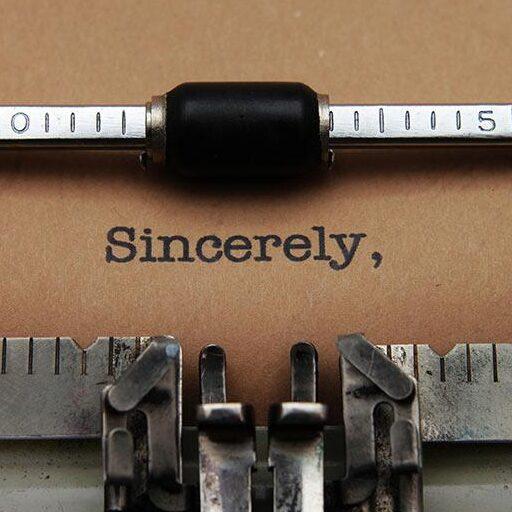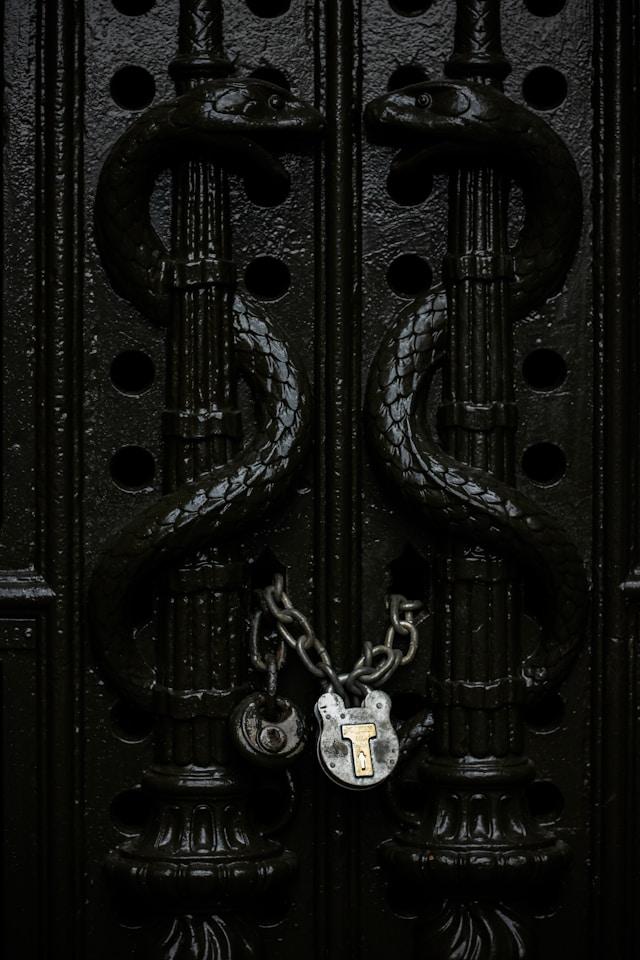The Power of I: Solenne’s Journey

Timothy Dykes (Unsplash)
I’ve heard it said that all writing is part autobiographical. I can’t help but agree when I reread drafts and recognize the bits of me that made it to the page—me as a mother, a friend, a survivor. Sometimes entire memories are reconstructed as scenes. More often, it’s only my emotions—my anger, fears, and grief—that fuel my stories and bring my characters to life.
Solenne was born out of resilience.
I placed her in a broken America, a world that mirrors our own in some ways and the antebellum South in others. If readers are looking for sophisticated commentary on war or politics, they won’t find it here. Instead, the narrative focuses on what is most important to Solenne: autonomy, love, and finding it in a world where her body is commodified.
The story is told solely through her eyes, and if I’m honest, it was out of necessity. The world never begs you to give a voice to the difficult; it tells you to water it down or keep quiet. Out of the deep desire to speak the most intimate truth, I gave Solenne a voice using first-person narration.
There is power in “I”—to become that which is too often ignored, to highlight hypocrisies by magnifying accepted worldviews. The reader is trapped in her flawed mind, forging empathy for a Black girl even when she’s imperfect. Up close, they watch her break mentally and physically, and they question. Who would she have become if the world had not defined her at birth?
The Power of Women
Understanding Solenne’s journey requires patience, a virtue she asks of the reader when few in her world offer her any. She navigates structural racism, entrenched within a system built on oppression and hypocrisy. Hers is a patriarchal world where Black men are largely absent—deployed or casualties of war. This is a breeding ground for distortion. History is skewed, erased, and told solely from the dominant perspective.
…I alternated between writing in my journal and searching databases on James’s computer for articles on enslaved girls on the slave ships and plantations. Zero returns. If the Order erased these stories, where in history would I exist? (p.74)
Through patient and unsugarcoated interactions with older women, both Black and white, Solenne expands her understanding of racism and sexism. The teenager who too often thinks she knows it all learns the distinctions between structural and interpersonal racism. The women beckon her to question the nuances of overt and benevolent sexism, which often masquerades as protection or kindness.
“He would’ve taken me with him if he could’ve,” I told that old bat. “He wants to keep me safe.”
[The woman] raised her eyebrows and turned away as if she’d heard a lie. (p.161)
“Next, tell me how many soldiers had Black women and Black children at home but marched off to fight for the Confederacy. If sex ended racism, racism wouldn’t exist,” [Penelope said.] (p.199)
“Most of what keeps you in chains is up here.” [Butter] tapped a finger against her temple. “It can’t be love when he holds that much power over you.” (p.169)
Identity is maintained through storytelling and hidden texts. The women pass down personal and untold history from generation to generation.
Hazel Scott’s face floated disembodied next to the words, sleepy- eyed and coiffed curls. Guidry told us she was outspoken about Jim Crow laws and discrimination. (p. 28)
I didn’t tell him Guidry told us the civil rights movement and protests against Jim Crow laws sparked the war. (p. 214)
Black women share knowledge of navigating this world, having learned it by being removed from their homes at fifteen to serve in ways no one should experience.
“Henriette was fifteen when she made it through the Middle Passage,” my mama told me. “Read her story so you learn early what too many of us learn late. First, never hang on to anything too tight. Second, nothing in this world, not even the Order, is enough to kill you.”
I stayed up all night, reading. When sunlight filled my room, I understood Mama, Guidry, and all the other Black women who put lessons in my ear and parts in my hair. I would never know how it felt to walk boldly because this world wasn’t mine. My tears would never be a weapon. There was no patience for my softness, my wounds, my unraveling. There was no protection for me, a Black girl, no tender touch, no consideration for a delicate exterior. No space to scream. (p. 25)
Then I remembered my mama’s advice the night of her last visit, to file away that promise as pillow talk and to never rub him raw with my words. Over idling wind, I heard her disquieted murmur as we fell asleep, fingers intertwined, braids mixing on the pillow. At least he doesn’t hit you. (p. 30)
Fear breeds loyalty through subservience. She’s conditioned to seek protection and happiness from men, first found in her father. When that stability is tragically removed, she wanders, searching in the dark. She buries the lessons she’s learned from the women around her and doesn’t heed their warnings. At the end of a darkened hallway, there is relief from the pain of loneliness—a sliver of light under a government official’s office door.
The Power of Duality
Solenne is a complex character who evolved over many drafts. Initially, she was soft and easy to chew. I tried to create a Solenne who could circumvent reader bias. Even as a child in a fictitious dystopian world, she’d be expected to know better, to operate with an adult’s mind. I knew this. I recalled colleagues’ interactions with our students who were just little Black girls. “I know you know better,” they’d say when the girls made age-appropriate mistakes, and I’d ask why. Why should she know better? The answer was clear: Black girls are often viewed as older or more mature than they are.
“You should’ve known better,” [Troy said]
“At what point can we be children? Why do we always have to know better?” [Solenne said] (p. 245)
Mama said something about her child making mistakes and learning from them, but Guidry talked over her while she ushered us into her office, musty with old books and whatever food she had wrapped in foil on her desk. “You know as well as I do making mistakes don’t apply to us.” (p. 16)
I fought back in the draft. I revised. Her mistakes became the crux of the story. Solenne didn’t need to be perfect, hard, or mature. She needed space on the page to be understood.
I hoped to accomplish that by using dual timelines. She’s fifteen in a timeline that explores the creation of power imbalances and abuse, from grooming to complete control. This timeline, with its examination of fear and the manipulation of multiple girls and women, is also a microcosm for how I believe immoral societies are formed. When such dynamics are replicated in countless households, they contribute to a societal breakdown where the unspeakable becomes normalized.
The second timeline takes place five years later and asks and answers whether she will ever experience psychological and physical freedom. In both timelines, she constantly oscillates between child and adult, a divide established by a hypocritical society. She is viewed as a child mentally.
“No, she can’t bring cherry chewies,” [Bastien] said. Sugar led to addiction, and addiction was for the weak. “No, you can’t have a drink after dinner. You’re too young for alcohol.” (p. 142)
Bastien succinctly presented his position. I was only twenty years old, naive, confused, and perhaps influenced by people who were also naive and confused. I didn’t understand what I was asking for. (p.241)
“And I believe you deserve to be taken care of because you don’t have the skills to take care of yourself. Where will you live? What would you do for work? You haven’t asked yourself these questions. You’re reckless.” (p. 258)
Physically, the way her body is used, she is expected to operate as an adult. There is a duality in scenes with Solenne and Bastien, a mix of the innocuous and the monstrous. Through this juxtaposition, her deepest desire is love. The reader witnesses this discordant search through a series of heart-wrenching firsts—hand-holding, kissing, and sexual experiences. These were the scenes most difficult to write, but they were necessary. There is power in discomfort.
Late one evening the sky churned. Bits of foreign ice pelleted the windows. I hadn’t seen snow or ice since the ice storm that shuttered businesses and schools four years ago. My palms iced against the glass. “Do you see this? But you hear it, don’t you?”
He watched me with a pained expression, a brooding silence. (p. 110)
Bastien signals to the reader there will never be time to ride the Ferris Wheel at a carnival or experience the wonders of snow in Texas. Society can’t offer that kindness. Neither can he.
Power along the Journey
An emotionally simplified version of the story would have depicted Solenne’s feelings about Bastien as less complex, or created distance by employing a third-person narrative with an impartial narrator. However, his character needed to serve as a mirror to Solenne’s inner turmoil. He is an extended metaphor for hypocrisy and the power imbalance that both harms her and catalyzes her growth. Over the years, through their interactions, he inadvertently teaches her to assert her power.
He paused to lift my chin the moment the three-second rule forced my eyes to the floor. (p. 104)
I said the only words that had ever been able to change his mind. “Then I’ll go home. I’m not staying here waiting for you.”
Washcloth pulled from his face, he stared into me, mustache and beard slick with water. He wanted me to delete my words from the air, to show him his word was my world. “You’ve been starting arguments before bed. You’ll refuse to let me touch you. Yesterday, it was about attending a meeting. Tonight, it’s Georgia.” (p. 222)
She’s physically beautiful and learns early that she’s afforded more opportunities to push boundaries. These acts of defiance are significant to her. They are her way of reclaiming autonomy in a world that offers her none. She whispers on some pages and shouts on others for the time and space to be a child, human, flawed, evolving.
I told him I would rather stand all night than to sleep with him. Told him I couldn’t stand to look at him, and he was a criminal keeping me locked in a room. Pervert. Bastard. Racist. Hypocrite. No wonder you’re not married. No wonder your daddy ran off and left you in the woods when you were eight. He couldn’t stand you either. I said all those things from my corner. Sad eyes set in a hard face. A wounded animal shredded by a woman’s weapon, and I was happy to do it. I had holes in my interior. He should have the same. (p. 205)
One day, I would love myself more than Bastien. I would look into somber waves and jump from this ship, leaving his hands empty. Alone, I would sit with my memories and Henriette’s story and write part five. The conclusions to long stories would finally live on the page, not as two voices, but coalesced into one. Those who gave everything and lost, withheld everything and still lost, would hear our voice and find truth in the dark. They would understand me, her, us. The descendants of survivors. (p. 260)
Wanting is stretched into the narrative, from beginning to end until it capsized into need. Solenne needed something that resembled love, and she found her Kudzu. The years tightened their grip until she was breathless, and yet, when she was presented with two options, stay or reach for more, she grasped chance at the root and pulled. I recognize that as strength.
Still, the part of me that begged to retreat into safe writing, wrestled with the part that needed to write honestly. I told myself, Even with a broken world resting on her shoulders, they’ll expect her to know better. Some won’t understand.
Solenne whispered back in her authentic voice, “Oh, but the ones who will…”



